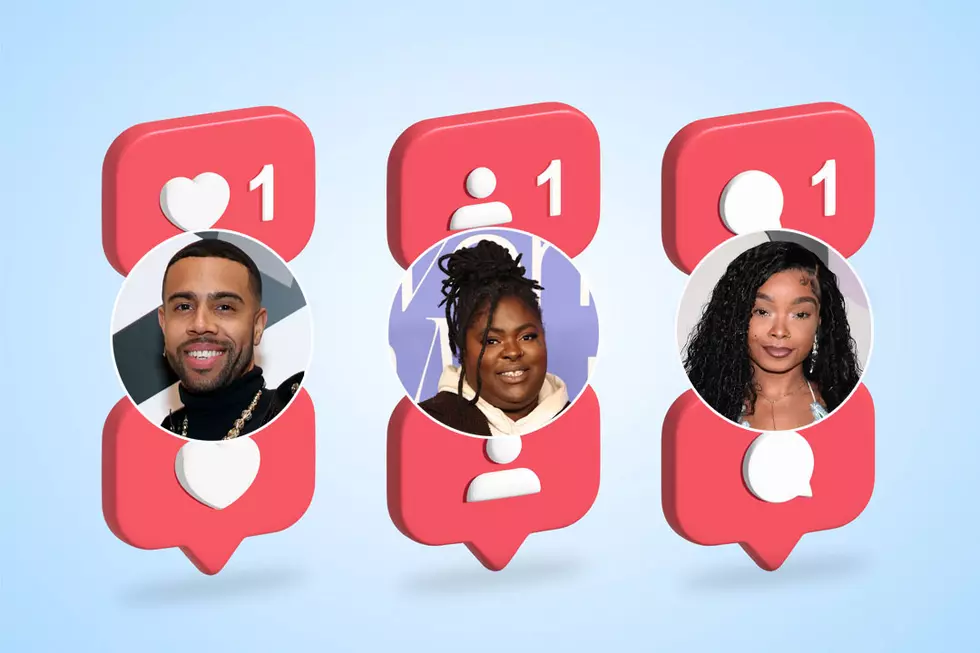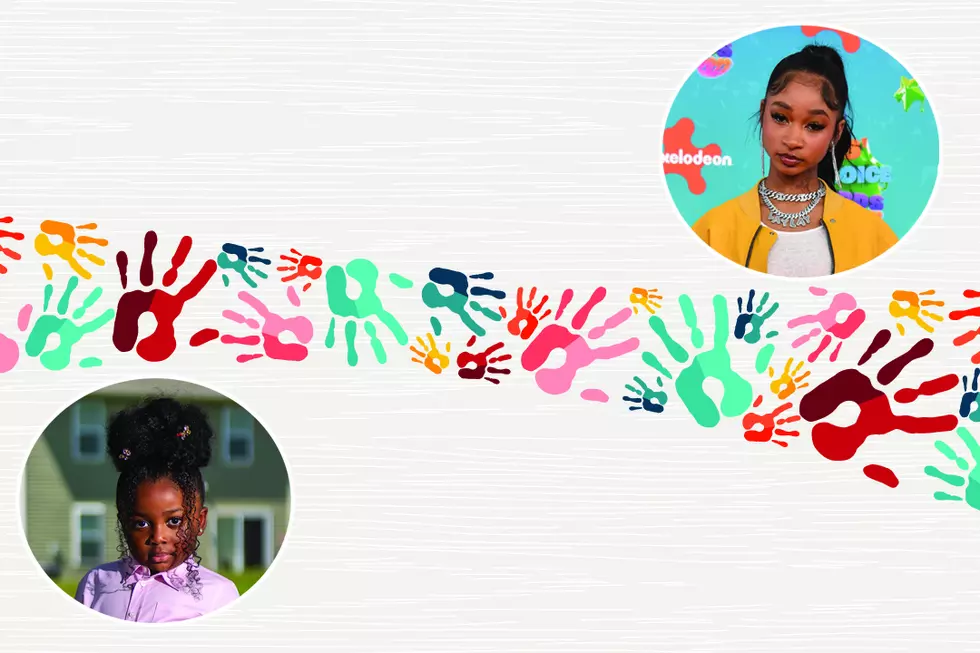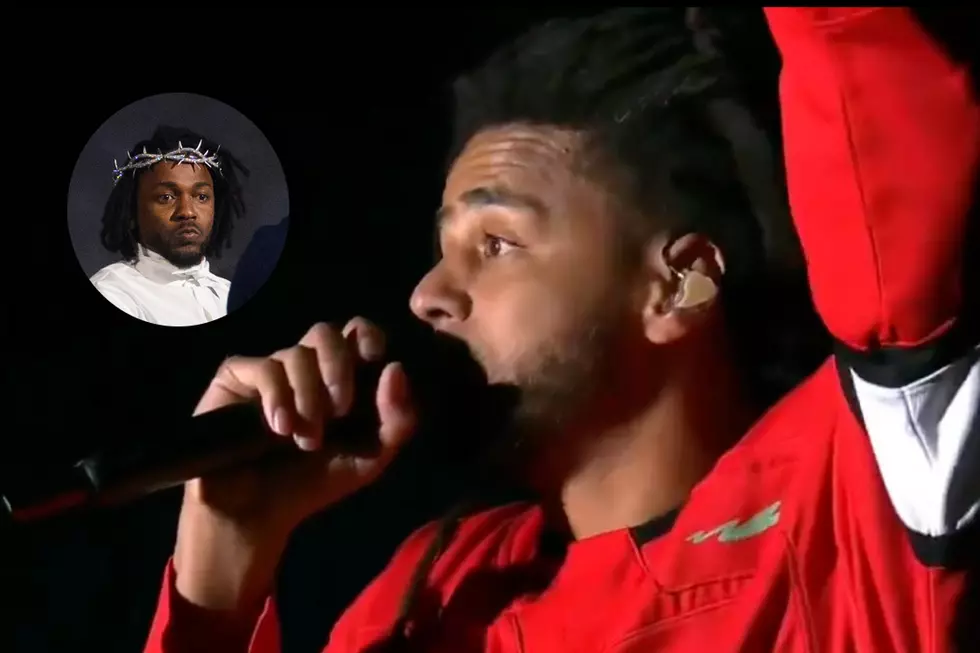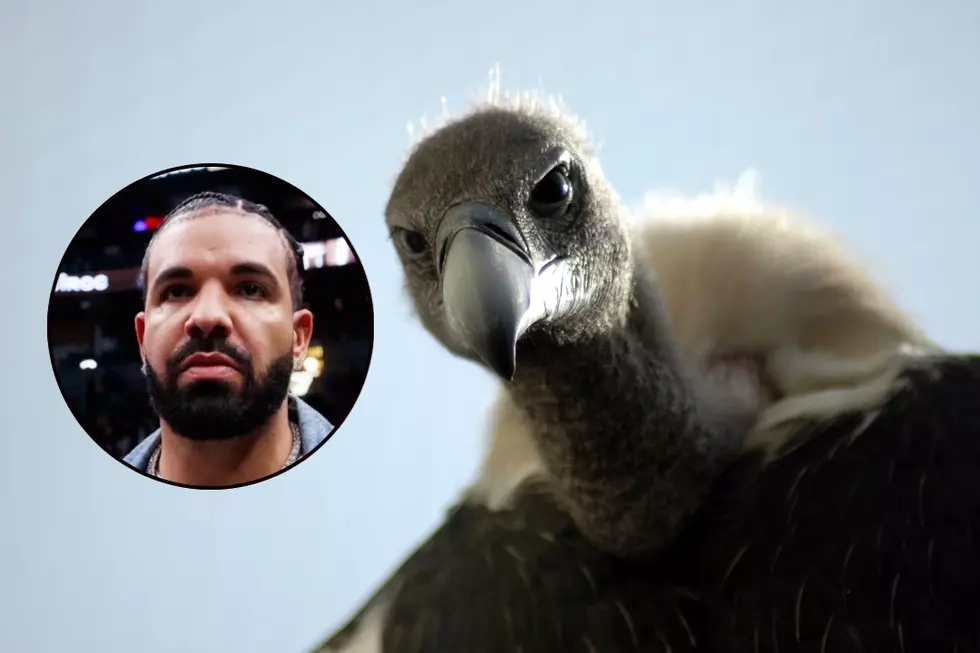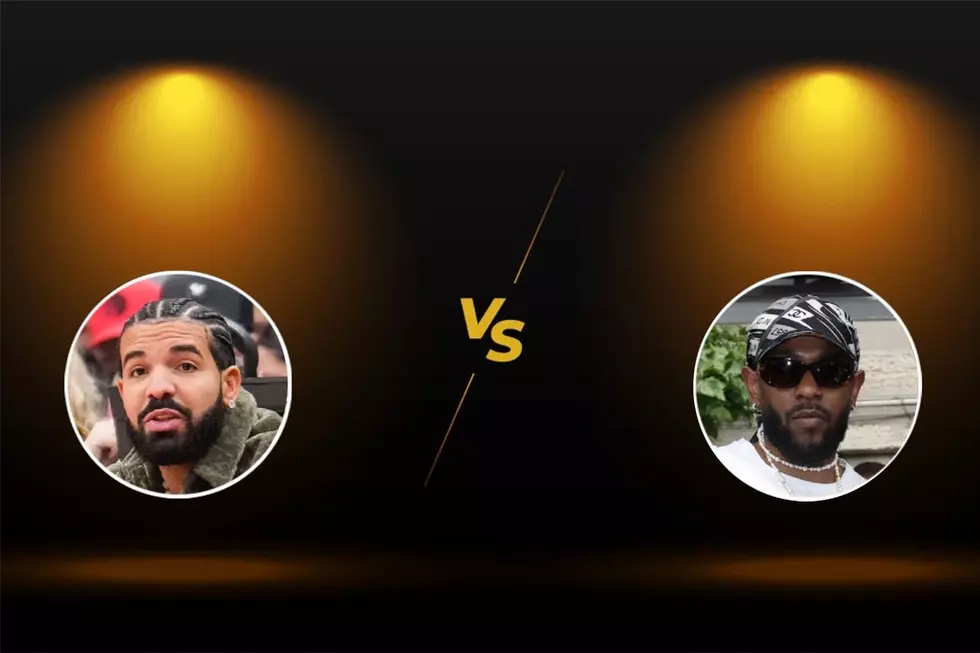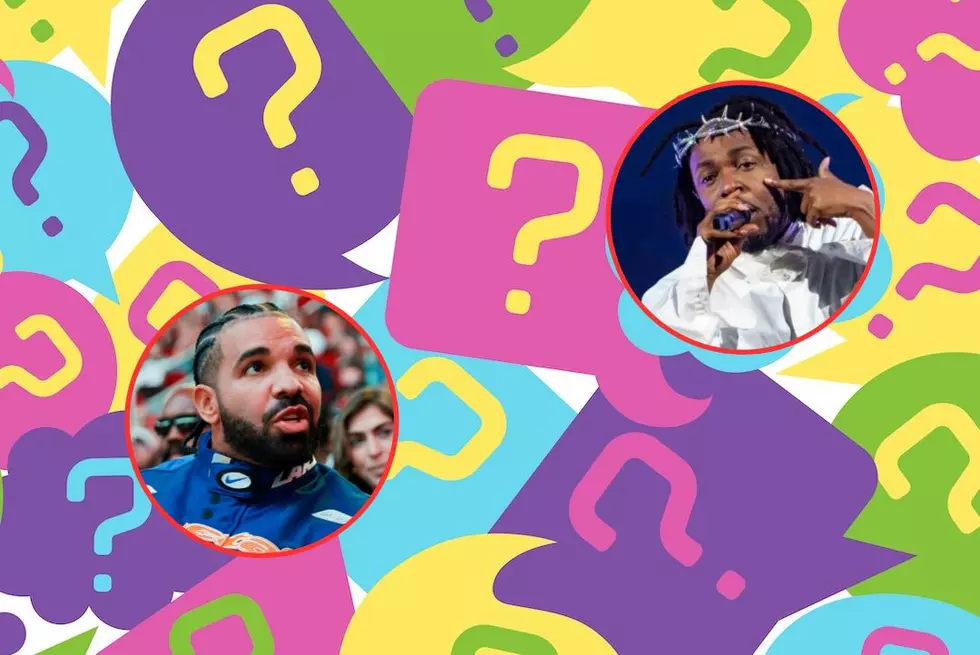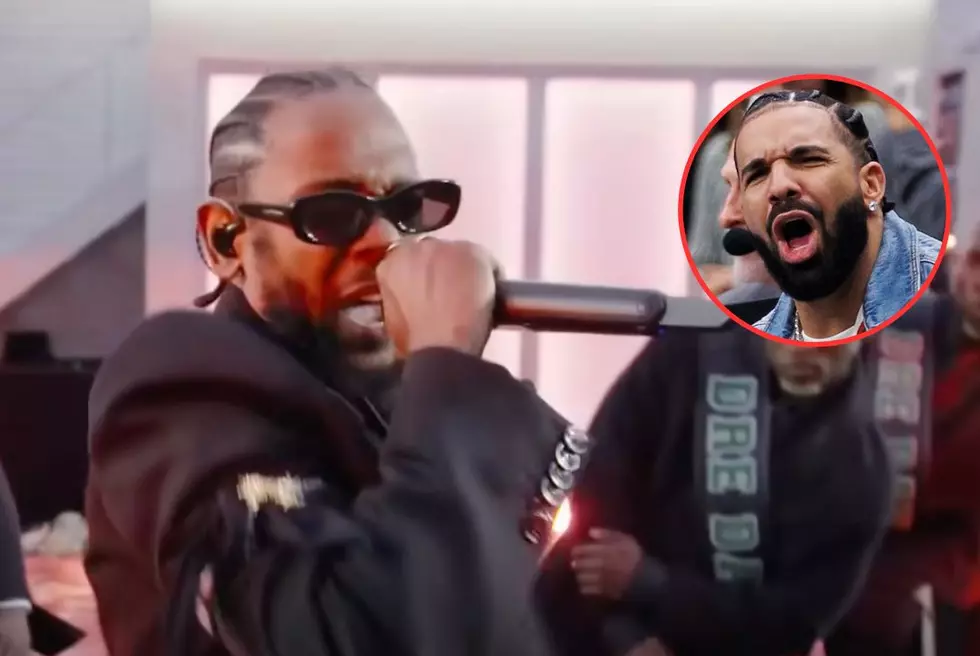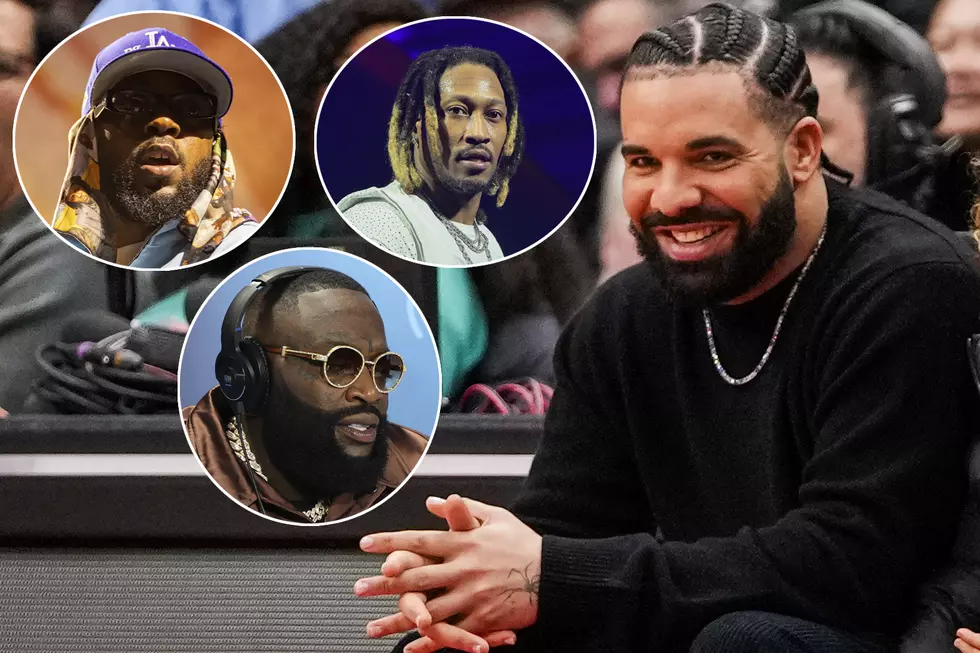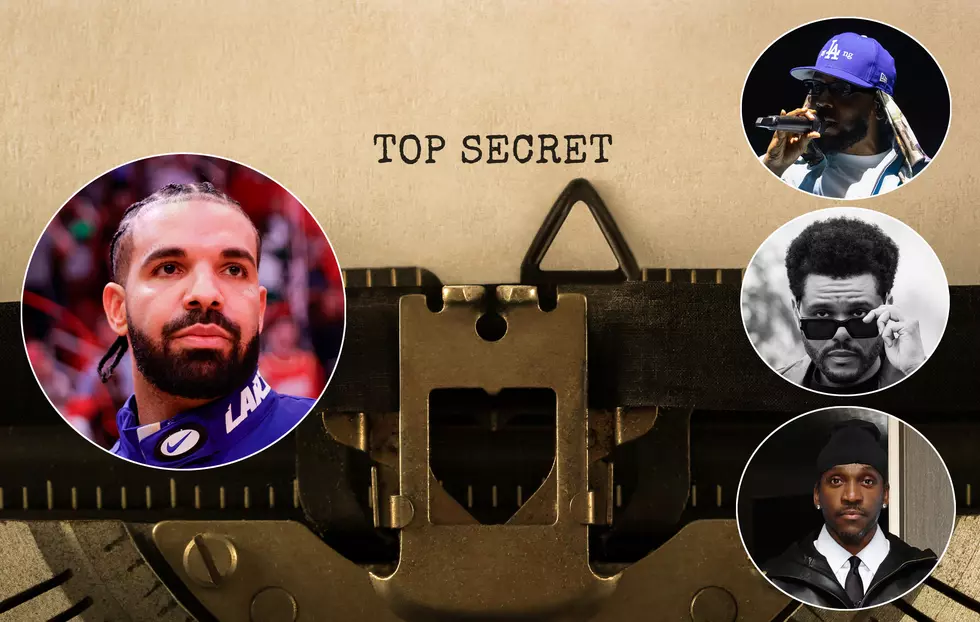
Palestinian Rap Group DAM On The Political Difficulties Facing Palestinian Hip-Hop
Last year, XXL introduced readers to the groundbreaking Palestinian hip-hop group, DAM. At that time, the three rappers—Mahmood Jrere and brothers Suhell and Tamer Nafar—had just dropped their second album, Dabke On The Moon, and were gearing up for a U.S. tour. They’ve just wrapped up another quick U.S. tour, and XXL caught up with Mahmood and Tamer last week in Brooklyn.
As the first-ever Palestinian rappers, the members of DAM are certainly qualified to explain Palestinian hip-hop, Arabic hip-hop on the whole and their unique position at the center to all of it. The MCs spoke with XXL about where they think rap in the Middle East is headed, and about their current group and solo projects—including Tamer’s deepening journey into writing English rhymes and the daunting challenges of rapping in a third language. Tamer hesitantly dropped XXL a rough cut of an English verse he recently recorded over the “1 Train” instrumental (which he requested remain unreleased), featuring lines like:
So this mic is the subtitles for my subconscious
it’s the hardest when I’m the artist with the hardest concept
but don’t speak the accent of the contest
Hope the CIA don’t get this one out of context
'cause I’m about to blow this shit up
and
In the Arabic school I was causing real drama
classmates pronouncing “mother” while I’m rapping “Dear Mama.”
This American rap influence paired with DAM’s upbringing in Arabic music has birthed a whole generation of Arabic hip-hop, buoyed as of late by the Arab Spring uprisings—but there are still issues to be worked out. "Palestine is my country, but I’m an Arab and I cannot disconnect from myself," says Jrere. "The whole Arabic music movement is changing. There are new things happening in the Middle East... If we’re talking specifically about Palestine, we cannot ignore the political problem. As long as Palestine is under occupation, the culture and the art will be limited. Our art, our culture is dependent on our freedom. So what can we do in 10 years, if there is still Occupation?"
As pioneers of their genre now launching individual projects in and outside of hip-hop, the energy around DAM has the excitement of artists just finding their footing and the seasoned wisdom of players who invented a whole new game. —Katie Moore (@kmoorenyc)
Help us understand what it’s like to be Palestinian rappers. How is it harder for you than for American rappers?
Mahmood Jrere: American artists have radios, have TVs, a place to show their art. And this is what we don’t have, as Palestinians. Because we don’t have a country. It’s a lot of doing something from nothing. There are no studios owned by Palestinians, nothing supported by the Art House of Palestine, the Palestinian Authority. I’m talking about art in general in Palestine. So everyone is doing his thing, but at the same time they don’t get distribution, they don’t get radio time or TV. So it is very, very difficult. This is actually where we were blessed by the Internet as Palestinians; this is where we got exposed to the world.
We started to rap in Arabic in 2000, and this is when Arabic hip-hop also started, not only Palestinian hip-hop. We are the pioneers of the whole Arabic hip-hop movement. This is something we are also proud of. If people follow the news, I bet they’ve heard about the Arab Spring, which is the revolution in the Arabic world. Each soundtrack that’s coming out of those revolutions has to be a hip-hop song. In Tunisia, there was a rapper who was arrested in the beginning of the revolution.
"If people follow the news, I bet they’ve heard about the Arab Spring. Each soundtrack that’s coming out of those revolutions has to be a hip-hop song."
Rap has started to be really big in the Arabic world and is starting to be a tool of expression, of changing, of facing the government, facing the laws, anything you see that is not right. It is very poetic at the same time, as the Arabic language is. So, this is where we are. We still don't have the same tools that the Western world has, but we are building it now.
Tamer Nafar: Imagine we are Palestinians living inside of Israel. Imagine not to get played on the Israeli radio because we are Arab. Or not being invited to festivals because we are Palestinians. And at the same time, imagine that we are not being played in the Arabic media because we are Israelis. Imagine how shitty the situation is. Imagine the isolation.
But at the same time, imagine three young kids who are coming from not just Palestine in general, but in the worst city in Palestine. Lydd is considered the biggest drug market in the Middle East. I'm 34 years old, and I saw only one show in my life in Lydd. There is no culture, no pulse. So imagine all the bad things that I said, but at the same time, imagine these three young kids suddenly having tours in the U.S. and tours in Europe and living from that.
And the content?
TN: I would say that my main influence is American hip-hop, but I’m influenced by other kinds of music. I did not create the wheel, I just translated it. But I would say that I added to it. Here hip-hop was influenced by jazz, reggae and all these things. I was influenced by hip-hop, but I influenced that hip-hop with the sounds I heard when I was young, which was Arabic music. Everyone is influenced from someone, but the question is, what can you add to it? You took from it, now what can you add? And that's what makes the difference between a dope rapper and a good rapper.
"Their Independence Day is—they’re taking the country and the land from us, so they do it in a happy way. To celebrate. And we go and we do shows for free. To mourn."
How is it different for Israeli rappers? Is it easier for them?
MJ: Yeah. But they have a country, which makes a huge difference.
TN: For example, on Independence Day, they pay the Israeli bands around $20,000 per show. We don't have a country, so we don't celebrate Independence Day. Their Independence Day is—they’re taking the country and the land from us, so they do it in a happy way. To celebrate. And we go and we do shows for free. To mourn.
You have Israeli passports?
TN: We have Israeli passports, that's one of the good things. But Palestinians living in the West Bank or Gaza, they don't travel. One of our friends, a rapper, Mohammad al Ferra from PR Gaza, he left and he cannot come back since. It’s been like eight years. So of course, it's all relative.
Tell us about the new English music you’re working on. Tamer, didn’t you start rapping in English?
TN: It was shit. But now I’m doing it more professionally. The accent did not change, but now I know more about how to write the rhymes, how to flow, the delivery. It takes me an hour to finish an Arabic song, but it takes me a week to finish 16 bars in English. We are trying to do the hooks in English and one verse in English. I got an English teacher, and he comes at the end and fixes things. He used to be a rapper in D.C., and he controls Arabic and English really good. So if I have a problem with a word, he can find a different word that suits.
"American artists have radios, have TVs, a place to show their art. And this is what we don’t have, as Palestinians. Because we don’t have a country."
Why write in English?
TN: Because I can. I do it in Arabic, in Hebrew, and I can do it in English. Maybe 50 percent of our shows are in Europe, and I want them to know that we are not coming from Palestine and that’s it. We have a lot of good punchlines, metaphors; we learned from the best. I want them to know that when we build rhymes, we have references like Rakim, like Eminem. And when we wanna talk about depth, we have references of not just Common and Talib, but also Mahmood Darweesh [Palestinian poet] and Naji al Ali [Palestinian cartoonist].
MJ: I don’t write in English, I write in Arabic and Hebrew. But I think English adds a lot to the show, and I’m cool with that. When you come to the U.S. and different places and you only sing in Arabic, they don’t understand the lyrics. If you get them in something, it is the performance, and it is the music itself.
Why do you write in Hebrew?
MJ: Back then, there was an Israeli scene already doing hip-hop in Hebrew and there was no Arabic scene. There was, but we didn’t hear about it. It took us time to create how to write in Arabic and how to put the rhymes and how to flow on the beat. DAM was boycotted by the Israeli media, by the Israeli hip-hop scene, so then we only did it in Arabic. We lost interest in doing hip-hop in Hebrew.
How’s the response to the most recent album (Dabke On The Moon)?
TN: Really good. I see a lot of people quoting lines, they like the lyrics, they like the production. It’s really different from the other album; it’s more musically progressed. I wouldn’t hesitate to say more commercial...not the content, but the musical package. I think I’m young enough to enjoy Ludacris and 50 Cent, but I’m old enough not to follow the lyrics. I think that I can learn from each.
I will not tell bitches to move: “Move, bitch, get out the way.” But I can say, “Wow, what an amazing flow!” It’s Luda, come on. I don’t have to follow whoever’s lyrics, but I can enjoy the beat, I can enjoy the delivery, the sound, the character. I can enjoy the rapper that’s saying words I don’t agree with, and say, “Wow, he’s very good with the camera.” So that’s the album; the album is in between. You will find yourself between Arab pop singers, world music, commercial hip-hop, Public Enemy, Joey Bada$$.
Anything else in the works now?
TN: We are discussing a new mixtape or album. We haven’t decided yet. I was really on fire when we said let’s do half English/half Arabic, but then after I recorded the English, I freaked out a bit. I backed out, and I feel that if I develop it alone a bit, I’ll be ready. So I’m developing it in my slow rhythm. For now we are performing, we are working on videos to promote this album. Mahmood offered that we have a lot of unrecorded verses, that we should drop a mixtape. And I agree.
MJ: This album will take time to catch up, because the Arabic hip-hop scene still is not on that level yet. I’m talking about sound. A lot of people really love the album, and a lot of people who heard Dedication, the first album, they are disappointed because they want us to do the same sounds. I think this album is much more developed—it’s not only three MCs [rapping], but it has beautiful bridges and beautiful sounds, and you need a deep listening to really know the album.
Personally, I’m working with Abed Hathut, from the Palestinian rock band Khalas. I’m working on my album—it’s a little bit experimental, not totally hip-hop. I’m trying to discover new sounds and discover new areas. I love rock as much as I love hip-hop.
TN: I just finished a photography campaign. It’s a series of 12 photos called Room #4, and it’s gonna tour around the world. And I’m working on the first Palestinian hip-hop movie, a long feature. I’m working with a guy who is one of the best writers in Hollywood, Oren Moverman. He was nominated for an Oscar. I’m working with him and with Udi Aloni, the producer. So while we’re in New York, that’s what we’re doing every day. It’s almost there.
Where do you see Palestinian hip-hop in 10 years?
TN: I see it either as one of the biggest things internationally or dead.
MJ: I don't really agree, because I cannot think about Palestinian hip-hop without looking at the bigger picture, which is Arabic hip-hop. We share the same language. Palestine is my country, but I’m an Arab, and I cannot disconnect from myself. The whole Arabic music movement is changing. There are new things happening in the Middle East. There is a movement in Palestine called Dub-Key which is bringing dabke, a traditional Palestinian dance, together with reggae.
"People hardly hear about Palestinian life, the Palestinian street; if you hear about Palestine, then you hear about the politics...There’s a unique sound, there are unique stories. And I think it needs somebody to document it."
If we’re talking specifically about Palestine, we cannot ignore the political problem. As long as Palestine is under occupation, the culture and the art will be limited. And it won’t have the right support and the right exposure. Our art, our culture is dependent on our freedom. So what can we do in 10 years, if there is still Occupation? And I believe there will be, seeing how the world is running now. I can see that there is still creative Palestinian music, but it is not that exposed because it is controlled by another power.
Since you are Palestinians whose voices are heard internationally, do you ever feel a responsibility to use your lyrics to teach?
TN: There’s a thin line; I don’t know. And we do have these songs, but in a way you start feeling like, who are you to teach and preach to other people? I just don’t like it anymore, because I don’t like it when other rappers teach me how to enjoy my life or how to do good.
I just wanna tell stories about my life, document my generation. People hardly hear about Palestinian life, the Palestinian street; if you hear about Palestine, then you hear about the politics, and if you hear about the politics, you’re gonna hear about the West Bank and the agreements between Benjamin Netanyahu, Obama or Kerry or whatever. There are 1.5 million Palestinians carrying the Israeli passport and living inside of Israel. They are not part of these deals, they are not part of these negotiations. So I think there’s a unique sound, there are unique stories. And I think it needs somebody to document it.
We had a show with Pharoahe Monch once in London, and I was amazed that he was amazed...because I quoted a few of his lines. And he said it was amazing to him that he wrote that line about something he saw outside of his window, and thousands of miles away, some guy who doesn’t speak English is quoting him.
I’m just trying to show you the unique things. I’m not trying to say that, “The world must hear my pain because they don’t know nothing.” I’m sure people in Jamaica are suffering as well. I think it’s shittier in Sudan or Somalia. A shittier life. But I would never know about what’s happening in Somalia, if I hadn’t gone through K’naan. I would not give a fuck about Sierra Leone without watching the Leonardo DiCaprio film. I think there are ambassadors of art. I want to document my stories, I want to talk about how this guy grew up on Western hip-hop but lives in a society that is so conservative. So I think I live in a unique place. I think DAM has a unique sound, so that’s what I’m gonna deliver, and I’m sure people will enjoy it the same way I’m enjoying other people’s music. And if not, well, something’s wrong with them [Laughs]. Or with the way I deliver it.
More From XXL
